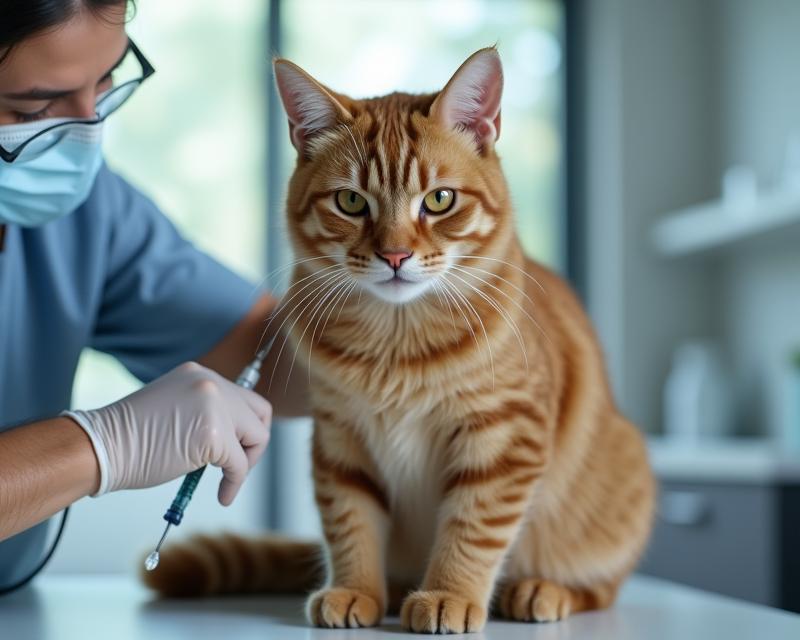Cat Vaccinations: A Must-Know Guide
Publish in Health el 30/06/2025 23:40
Protecting Your Feline Friend: A Guide to Cat Vaccinations
As a loving cat owner, you want the best for your furry companion. One of the most important things you can do to ensure their health and happiness is to keep up with vaccinations. Vaccinations are a safe and effective way to protect your cat from serious, potentially life-threatening diseases. This guide will walk you through the essential vaccines and what you need to know.

Why are Vaccinations Important?
Cats are susceptible to a variety of viral and bacterial diseases. Some of these, like feline distemper (panleukopenia), feline calicivirus, and feline herpesvirus, can be very serious and even fatal. Vaccinations work by exposing your cat to a weakened or inactive form of the disease-causing agent, allowing their immune system to build defenses without causing illness. This means if your cat is ever exposed to the real disease, their body is prepared to fight it off.
Core vs. Non-Core Vaccines
There are two main categories of cat vaccines: core and non-core. Core vaccines are recommended for all cats, regardless of their lifestyle, because they protect against common and widespread diseases. These typically include the feline viral rhinotracheitis (fVR), calicivirus (FCV), and panleukopenia (FPV) vaccines. Non-core vaccines are recommended based on your cat's lifestyle and risk of exposure. For example, if your cat goes outdoors, your veterinarian might recommend vaccines for feline leukemia virus (FeLV) and feline immunodeficiency virus (FIV).
The Vaccination Schedule
Kittens need a series of vaccinations to build a strong immune system. Typically, the first vaccinations are given around 6-8 weeks of age, with booster shots every 3-4 weeks until they are around 16 weeks old. Adult cats usually receive booster shots every 1-3 years, depending on the vaccine and your veterinarian's recommendations. It's important to discuss a vaccination schedule with your vet to ensure your cat receives the right protection at the right time. Don't hesitate to ask questions about the vaccines and any potential side effects.
What to Expect After Vaccination
Most cats experience no side effects from vaccinations. However, some cats may have mild reactions such as a slight fever, lethargy, or soreness at the injection site. These symptoms are usually temporary and resolve within a day or two. If you notice any severe reactions, such as difficulty breathing or a severe allergic reaction, contact your veterinarian immediately. Regular vaccinations are a vital part of responsible pet ownership, helping your cat live a long, healthy, and happy life. Schedule a check-up with your veterinarian today to discuss your cat's vaccination needs!





